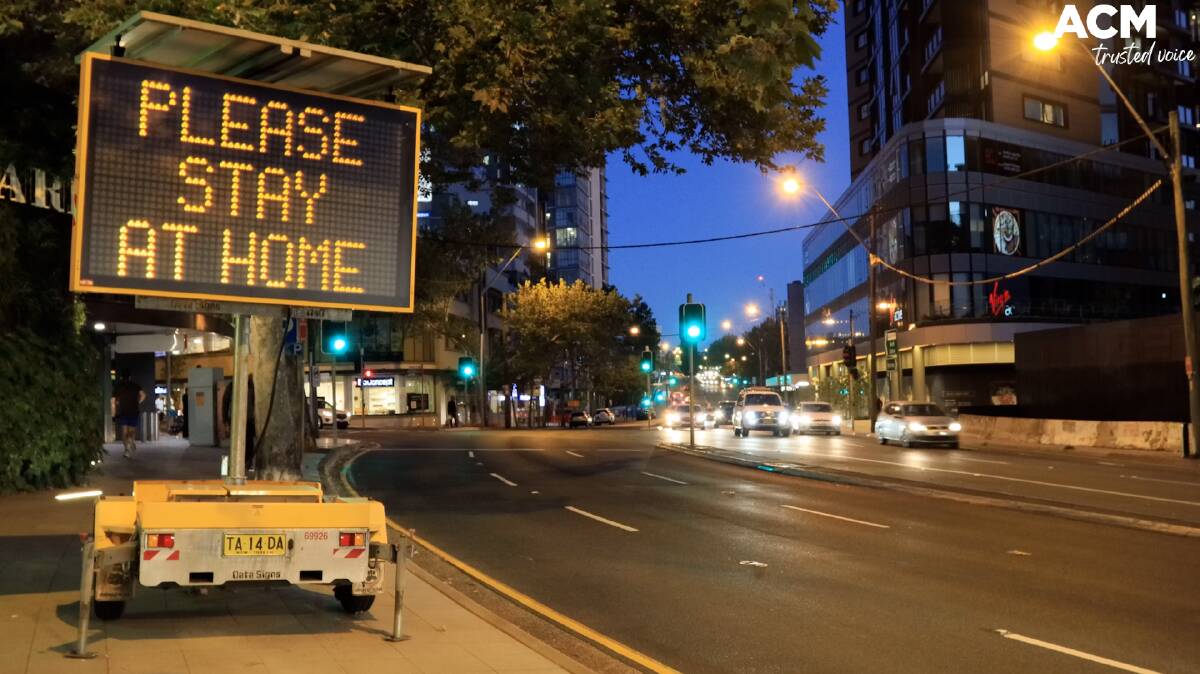COVID-19 is expected to kill 15,000 Australians by the end of the year.
With the rolling average sitting at 40 deaths per week, it seems the nation has collectively reached the point at which daily deaths can now be tolerated.
It's a stark comparison to the beginning of the pandemic lockdowns in 2020 when even one death with the virus caused the nation to stop.
So has apathy toward the deaths now set in? University of Sunshine Coast, Queensland infection prevention specialist, Matthew Mason, believes the answer to that depends on who is asked.
"I think people who are directly affected by people dying will have a very different approach to people who are not," Mr Mason said.
"So it comes down to essentially a societal decision about where we're at in the pandemic. And I think there will be people who fall on both sides that, you know, this is OK where we're at and there'll be people who fall on the side that it's certainly not OK where we're at."
Related:
It's a sentiment that Newcastle University immunologist Associate Professor Nathan Bartlett agrees with.
In the NSW Hunter New England health district, where Professor Bartlett resides, there have been around 240 deaths with COVID this year. Professor Bartlett describes the situation as "critical" and "unacceptable".
"People just want to move on, so largely, we seem to becoming a bit desensitised to the deaths," Professor Bartlett said.
"But this number of deaths each week is really not acceptable over the long term."
In Mr Mason's home state of Queensland, for example, from the start of the pandemic in December 2019 to the first week of January 2022, the state had recorded only eight deaths with COVID-19.
At the time of publication, the sunshine state has reached 1171 deaths. It breached the grim thousand mark milestone last month after managing to keep the deaths under double digits for two years.
By way of comparison, in 2019 there were a reported 1080 Australians who died with influenza.
"I think what we need to really consider is what does living with COVID actually look like," Mr Mason said.
"Not what do we want it to look like, but what does it actually and I think what's happening is we've got the community as a broader community, we going, this is what we want it to be like."
"No-one wants to go back to lockdowns and mandates and all those sorts of things, and we don't need to because we now know more than we did when we were doing that," Mr Mason said.
"This 'we've got to live with it, so just get on with it as though it's not there' [mentality] and ignoring the fact that we have people, lots of people dying because of it and lots of people who can't go on about their lives as normal and just go, well, that's their problem, not ours. I don't think we can do that."
In other news:
People in the older age group seem to have disproportionately been affected by the perceived hurry to 'return to normal' this year.
Different parts of the community have to deal with the virus differently and according to their personal needs, leading to a disconnect in society.
"I think there's this idea that if we say it's OK, then it is OK and people should get on with their lives," Mr Mason said.
"It concerns me that what we're doing there is we're devaluing people's lives and particularly with what we're seeing who's dying from COVID, it's people who are more vulnerable in our community, people who are aged or who have disabilities.
"Realistically, what we're saying [when we speak of] learning to live with it, is that people who are fit, healthy and able, and reasonably wealthy, they can afford to have time off from work, they can afford to buy RATs and do those sort of things, they can go back to normal at the expense of people who can't do that, who then have to stay at home because it seriously risks the health."

With the widespread removal of restrictions across the country, the onus has been placed on the individual to safeguard against the virus.
"How risky do I feel? For me, my level of risk is not the same as everybody else's. So I'm fine. I'm fit and healthy. I'm fully vaccinated. I've got sick leave if I get sick, I'm just going to go into these places without a mask on," Mr Mason said.
"That doesn't consider that there might be people who go into that [venue] who can't do that and don't have that ability.
"So should we not protect the community by popping on a mask? Should we not expect that our public spaces, shopping centres, libraries, schools, areas where people congregate have improved airflow and air filtration because we know that that works?
"And we can do that at a societal level and then that will be better not just for COVID, but also for other respiratory spread diseases such as influenza, which is also causing problems at the moment."


